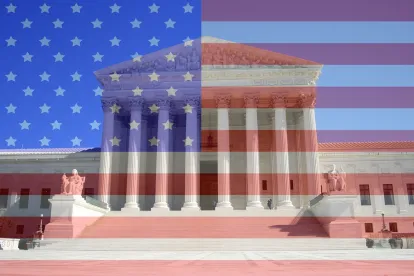Greetings, Court Fans!
It’s the first Monday of October, which means we’re back for another term of Court-tracking. Of course, OT20 is not just another term. We begin short-handed, following the death of the inimitable Justice Ginsburg just over two weeks ago. The effort to replace her—or forestall her replacement—during the final weeks of a presidential campaign promises to command virtually all of the public attention on the Court in the beginning weeks of the term. While most Court-watching eyes will be fixed on the nomination of Seventh Circuit Judge Amy Coney Barrett to replace RBG, we’ll remain focused as always on the Court’s orders and decisions.
Apropos, the Court has released orders from its Long Conference—adding seven cases (four after consolidations) to its OT20 calendar:
- Barr v. Dai (No. 19-1155) and Barr v. Alcaraz-Enriquez (No. 19-1156): These two consolidated ask whether the courts of appeals can presume that an asylum applicant’s testimony is credible when an immigration judge fails to make an explicit adverse credibility determination during an asylum hearing.
- FCC v. Prometheus Radio Project (No. 19-1231) and National Association of Broadcasters v. Prometheus Radio Project (No. 19-1241): In these consolidated cases, the Court will review decisions from the Third Circuit holding that the FCC acted arbitrarily (in violation of the Administrative Procedure Act) by eliminating long-standing restrictions on common ownership of newspapers and broadcast stations in the same market.
- BP P.L.C. v. Mayor and City of Counsel of Baltimore (No. 19-1189) will consider the scope a court of appeals’ review of a district court’s order remanding a removed case to state court when the action was removed in part based on the federal-officer removal statute (28 USC 1442) or the civil-rights removal statute (28 USC 1443).
- Perhaps most notable are Arizona Republican Party v. Democratic National Committee (No. 19-1258) and Brnovich v. Democratic National Committee (No. 19-1257). In those consolidated cases, the Court will review decisions from the Ninth Circuit holding that some of Arizona’s voting laws violate Section 2 of the Voting Rights Act because they disproportionately harm minority voters. Arguably more important than the legality of the restrictions themselves is the case’s potential to impact Section 2 of the VRA generally, which is far and away the law’s most significant provision after the Court’s 2013 invalidation of VRA Section 4(b).
As usual, the Court also denied certiorari in a great many more cases, some of which prompted statements from several Justices. Perhaps most notable is the Court’s denial of Kim Davis’s cert petition. You may remember her as the Kentucky county clerk who refused to issue marriage licenses to same-sex couples following the Supreme Court’s decision in Obergefell, based on her religious beliefs. She was promptly sued but argued she should be protected by qualified immunity, a claim the lower courts rejected. Justice Thomas, joined by Justice Alito, penned a “statement” regarding the Court’s denial of her petition, in which he took aim squarely at the Obergefell decision as wrongly decided. He nonetheless agreed that Davis’s petition was not the right vehicle for resolving “important questions” about the scope and meaning of Obergefell.
The seven new cases will join approximately forty others already set for argument this term, including a few potential blockbusters:
- In California v. Texas (No. 19-840) and Texas v. California (No. 19-1019), the Court will return (again) to the Affordable Care Act. If you can remember as far back as 2012, you may recall that a narrow majority of the Court (Roberts plus the four liberals) upheld the constitutionality of the ACA’s individual mandate under Congress’s taxing power. But a few years ago, Congress zeroed out the monetary penalty imposed on those who fail to obtain insurance coverage (as the individual mandate requires). Some states (e.g., Texas) thus argue that a tax set at $0 cannot be a constitutional exercise of Congress’s power to tax, so the mandate must be invalidated. But then they go further, arguing that the individual mandate is essential to the ACA (notwithstanding that Congress seems to have thought otherwise when it set the mandate penalty at $0), so the unconstitutionality of the mandate means that the entire ACA is unconstitutional. The biggest question in this case is not so much whether the mandate is unconstitutional. Rather, it’s whether anyone has standing to challenge the constitutionality of a $0 tax. And, if they do, can that unconstitutional tax be severed from the rest of the statute? We’ll know more after the Court hears argument in November.
- Fulton v. City of Philadelphia (No. 19-123) considers whether the City of Philadelphia violated the First Amendment’s free exercise clause by excluding Catholic foster care agencies that would not certify same-sex couples as foster parents. And if that’s not enough, the petitioners are asking the Court to reconsider its 1990 decision in Employment Division v. Smith, which held the government can enforce neutral, generally applicable laws even when they burden religious beliefs or practices.
- Google LLC v. Oracle America Inc. (No. 19-956) will address copyrights in computer code, specifically whether Google infringed Oracle’s copyrights in the Java programming language by reusing Java’s “declarations” when Google was writing the Android operating system.
- Ford Motor Co. v. Montana Eight Judicial District Court (No. 19-368) and Ford Motor Co. v. Bandemer (No. 19-369) are two companion cases addressing personal jurisdiction. In those cases, Ford was sued in Minnesota and Montana for alleged defects in their cars. But the cars were manufactured and sold in other states, and only brought into Minnesota and Montana by the plaintiffs. Ford contends personal jurisdiction is lacking, because while it is has contacts with Minnesota and Montana, those contacts don’t relate to the plaintiffs’ claims.
- Finally, Department of Justice v. House Committee on the Judiciary (No. 19-1328) is the latest of a long-line of Trump-related subpoena cases. This time, the Court will decide whether the House Judiciary Committee can obtain grand jury materials from the Mueller investigation, which would otherwise be protected by grand jury secrecy rules.
We hope you’ll follow us as we follow The Eight or Nine in the term to come.





 />i
/>i


